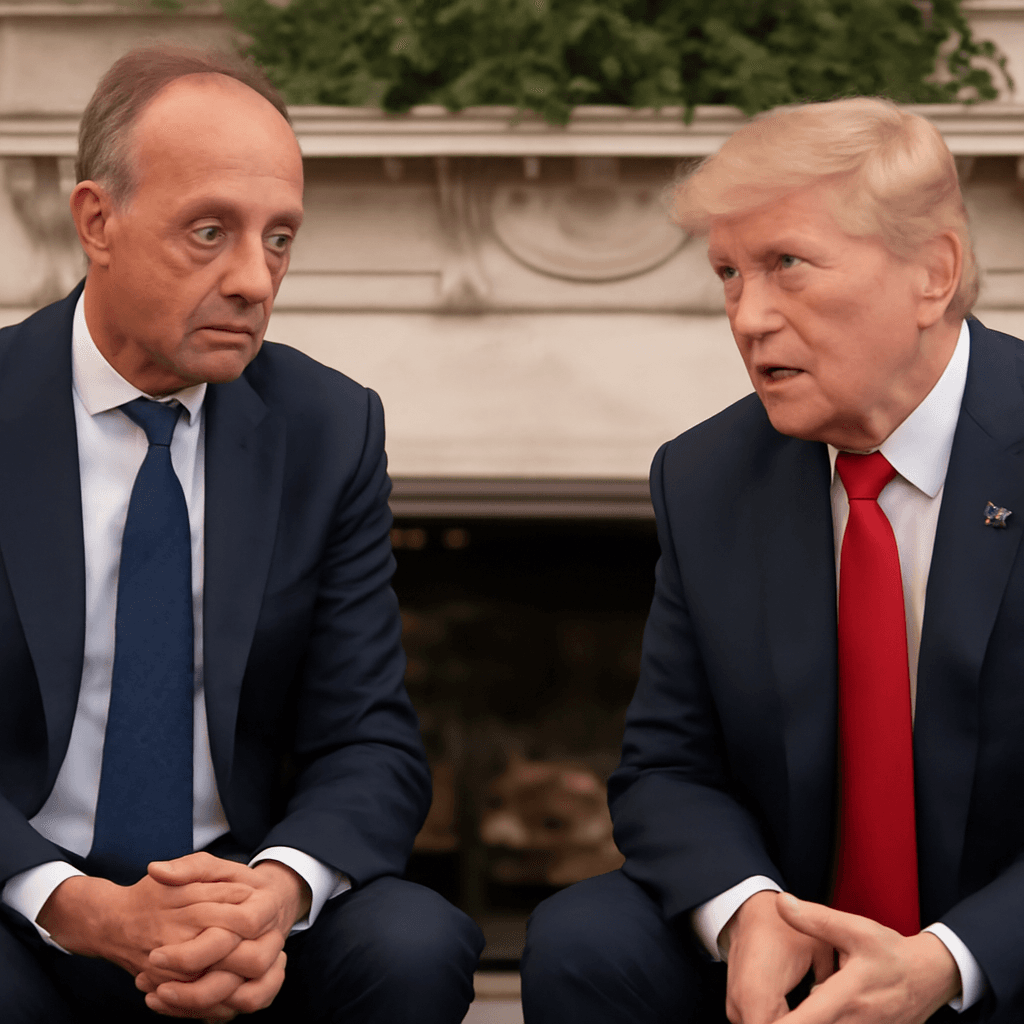German Chancellor Friedrich Merz Meets President Donald Trump
German Chancellor Friedrich Merz met with President Donald Trump at the White House, emphasizing that Trump holds a pivotal role in ending the ongoing conflict in Ukraine by exerting pressure on Russia. Merz described Trump as the "key person in the world" capable of influencing a resolution to the war.
Shared Concerns Over the Ukraine War
During their discussions, both leaders expressed mutual concern over the devastating impact of the war. Merz highlighted the suffering caused by Russian weaponry and stressed that Ukraine targets only military objectives, not civilians or infrastructure. He reaffirmed Germany's steadfast support for Ukraine amidst the conflict.
Trump’s Perspective on the Conflict
President Trump acknowledged his dissatisfaction with the war and expressed hope for an eventual peaceful outcome. However, he suggested that it might be better to allow Russia and Ukraine to "fight it out like children" to some extent, characterizing the conflict as a destructive, yet manageable confrontation.
Trump also revealed his recent conversation with Russian President Vladimir Putin, where he advised restraint following Ukrainian drone strikes that damaged Russian military assets. According to Trump, Putin responded that retaliatory actions were unavoidable and would have severe consequences.
Diplomatic Nuances and Historical References
Throughout the meeting, Merz pursued a diplomatic approach, having prepared thoroughly for the encounter to avoid confrontational exchanges. Trump made remarks alluding to World War II history, including an offhand comment about the upcoming 80th anniversary of the D-Day landings. Merz responded by acknowledging the significance of the liberation from Nazi dictatorship and expressing gratitude.
Trade and Political Issues Addressed Carefully
The meeting also touched lightly on trade issues, with Trump indicating the possibility of a U.S.-EU trade deal. Merz stressed the importance of confidence in negotiations amid concerns over threatened U.S. tariffs on European goods. Potential political tensions, such as free speech debates and U.S. support for Germany’s far-right parties, were notably sidestepped. Merz affirmed his readiness to speak candidly if these topics arose.
Conclusion and Outlook
Despite differing views on the conflict and various political complexities, the meeting underscored a shared commitment by both leaders to seek pathways toward peace. Merz’s measured and well-researched approach appeared to foster a respectful dialogue, leaving room for further diplomatic engagements.

